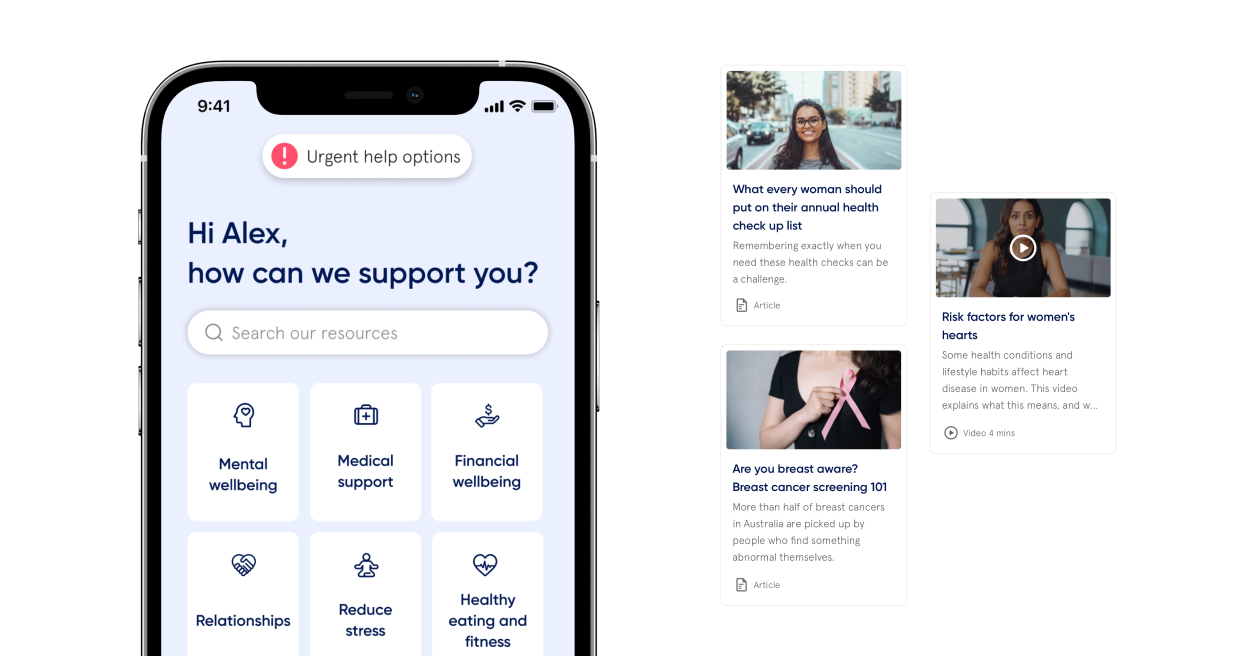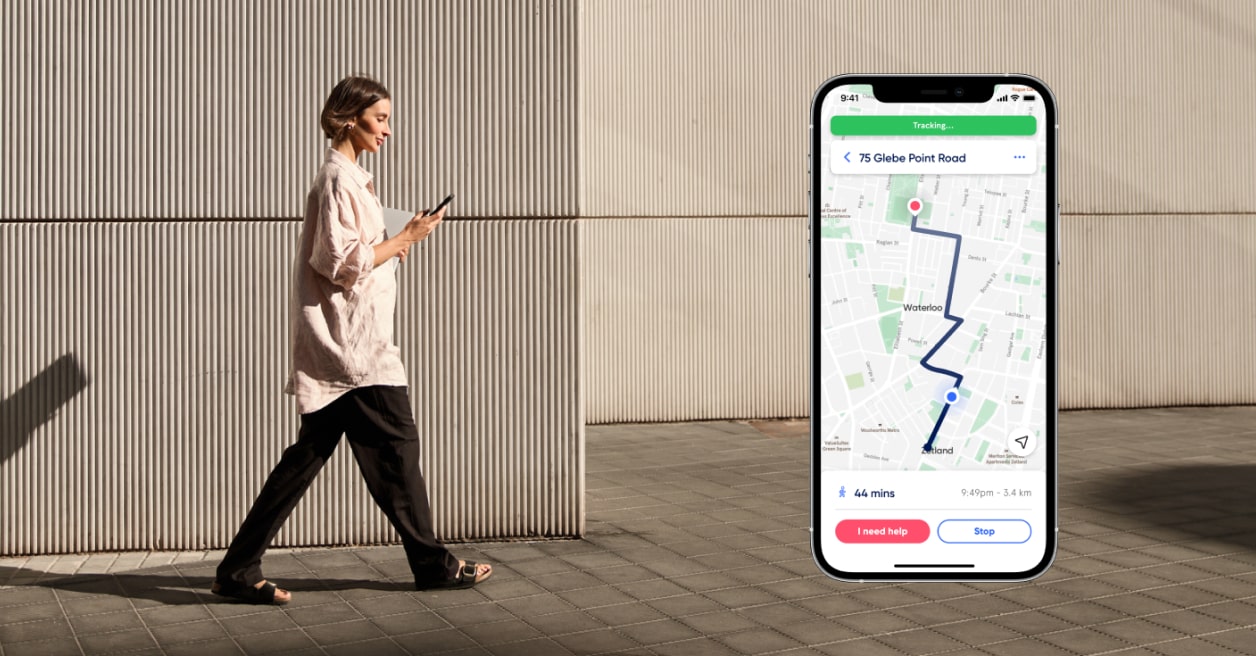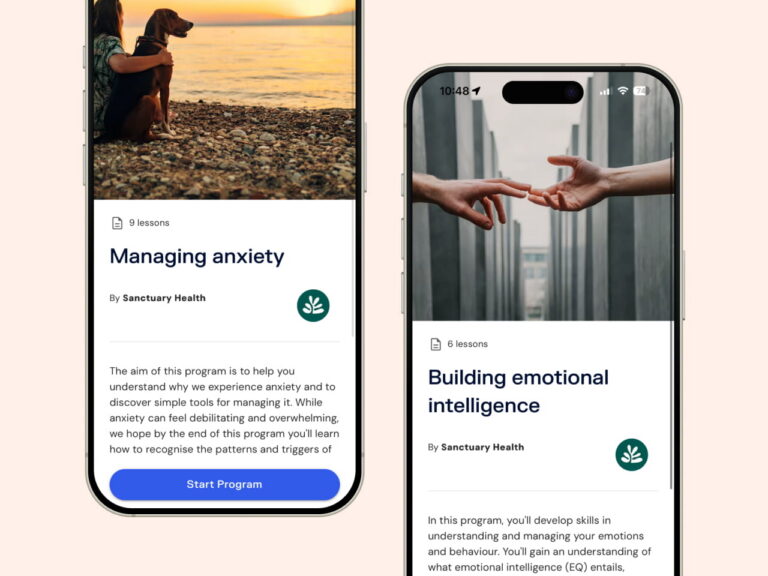At a glance:
- Invisible barriers: Women face unique health journeys, including menopause and fertility, that often go unsupported at work.
- The impact: Without support, health challenges lead to higher absenteeism and the loss of talented people.
- The solution: Inclusive workplaces focus on three pillars: radical flexibility, confidential medical support, and safety tools.
- The ROI: Prioritising women’s health improves retention, engagement, and long-term productivity.
From menstruation pain to menopause and even fertility issues, female employees face a number of health challenges that can impact their ability to bring their best selves to work. But, leaders can play an important role in providing the right support and company culture to help women thrive.
Big strides have been made in women’s participation in the workforce over the past 40 years. The latest stats from the Australian Institute of Family Studies show that as of 2022, women account for 48% of employed Australians, compared to just 36% in 1979.
While there are signs of progress towards gender equality at work, women’s unique health and wellbeing challenges are often overlooked by employers and can act as a barrier to meaningful workforce participation and career growth.
From physical pain to caring responsibilities, understanding women’s unique experience of work can help people leaders design company cultures and policies that can make the workplace a more comfortable and supportive place for female staff. All while building a culture where high performance and wellbeing go hand-in-hand.
What unique challenges do women face in the workplace?
Employees’ personal lives have a significant impact on their professional performance. Whether it’s dealing with a sleepless night due to a sick child or feeling the strain of financial pressures at home, it’s difficult for staff to deliver their best work while navigating personal struggles.
For female employees, these challenges are uniquely gendered and often invisible.
Deloitte’s Women @ Women 2024 report surveyed over 5,000 women from 10 countries, revealing that menstrual disorders, menopause and fertility challenges are impacting women at work, but many feel unable to take time off or seek support.
“27% of women don’t feel comfortable speaking up about personal issues related to menstruation, menopause or fertility at work.”
Source: Deloitte
Unfortunately, many women believe their careers will be negatively affected by discussing these issues at work. This can lead them to work through pain and discomfort—often worsening their wellbeing in the process.
Women who have experienced health challenges related to fertility, such as difficulty conceiving, high-risk pregnancy or miscarriage report similar trends. Three in 10 say they haven’t taken time off when experiencing high levels of pain or related symptoms. Nearly two in 10 have taken time off, but haven’t given the real reason.
Unfortunately, physical health challenges are far from the only issues that impact women’s wellbeing at work, which also include:
- Mental health challenges: More than half of women say their stress levels are higher than 12 months ago, with many feeling they’re receiving inadequate support from employers and aren’t comfortable talking about their mental health in the workplace.
- Safety concerns: Nearly 1 in 2 women are concerned about their personal safety in the workplace. Particularly when commuting or travelling for their job. Plus, 16% of women report dealing with harassment from customers or clients.
- Growing caring responsibilities: According to research from WGEA, 12% of all women in Australia identify as a carer, with women accounting for 7 in 10 primary carers. Increasingly, women are caring for a growing number of family members, from children to adults to ageing parents. Unsurprisingly, women with more domestic responsibilities have reported lower mental wellbeing and are less able to focus on their careers, too.
Recent research shows that poor mental health (particularly depression and anxiety) is associated with lost productivity in the workforce due to a rise in absenteeism and presenteeism.
How can leaders support women’s wellbeing in the workplace?
For employers, understanding and responding to the challenges women are facing at work needs to be a priority. According to this Deloitte report, women who are currently looking to leave their jobs regularly cite poor work/life balance and a lack of flexibility among the top reasons driving their move.
There are tangible benefits to prioritising women’s wellbeing at work, from boosting staff morale and engagement to reducing productivity challenges (such as absenteeism and presenteeism) as well as lowering the likelihood of staff turnover, too.
So, where should companies start?
Sonder’s recent focus on women’s health brought over 42 new articles, videos, and audio clips on the topic to the Sonder app. This included practical tips for people leaders on redesigning work to actually work for female employees, including:
Making flexible work arrangements accessible: From hybrid working and part-time schedules to compressed work weeks, flexible working is key to enabling women to balance the work/life juggle more effectively. With over 78% of Australia’s private sector offering flexible working arrangementsto staff, it’s clear that these strategies are key to boosting employee wellbeing, improving organisational productivity and attracting and retaining the best talent.
Sonder Tip: Accessibility is key to getting the biggest positive impact from flexible working arrangements. That means leaders and managers need to actively encourage and support team members to build a flexible work schedule that works for their needs. This should be backed by clear company-wide policies that are easily accessible and available to all team members.
- Improving paid leave policies: While paid parental leave is standard practice, workplaces should consider rolling out further paid leave entitlements tailored to women’s unique health challenges. From miscarriages to abortions to adoptions, providing additional paid leave to women navigating these significant life events will go a long way to boosting staff morale, loyalty and engagement.
- Offering flexible return-to-work options: After taking time away from work to start a family, the transition back to work should be supportive and flexible to give women the best chance of success. Offering stay-in-touch days, phased returns and gradual ramp-ups can support the adjustment, allowing women to continue participating in the workforce while navigating this new life stage as a parent.
- Providing access to confidential support: Managers shouldn’t be left to handle difficult conversations with staff. Giving staff the opportunity to self-nominate and gain professional health support confidentially can remove any fears around seeking help, particularly for female staff who may be concerned about the impacts of personal struggles on their career progression.
How Sonder supports women’s health, wellbeing and safety at work
One of the most effective ways to boost women’s wellbeing at work is to ensure it’s easy for female staff to access the support they need. With Sonder, taking a proactive approach to wellbeing at work is simple, with one consolidated platform to help women at all stages of their health journey.

In practical terms, here’s how Sonder solves employee wellbeing and safety challenges to foster a more inclusive workplace for female staff:
- 24/7 support: The Sonder mobile app ensures women can seek out help whenever they need it, rather than being limited to traditional business hours. From on-demand wellbeing resources (like guided meditations to healthy recipes) to the ability to chat with a healthcare professional in seconds, members can seek out support via Sonder at times that suit their schedule.
- Confidentiality for sensitive issues: Sonder’s confidential support service means women are never worried about speaking up about their concerns or seeking help for the medical, wellbeing or safety challenges they’re facing.
- Support for family members: Often the primary caregivers for households, women can also seek support from Sonder’s platform for immediate family members, from children to parents, to reduce barriers to accessing timely, personalised care.
“Last night, my son came up in a rash; I used the medical element of Sonder and had an answer from one of the nurses in 15 minutes and the reassurance I needed. She was thorough and even asked for a follow-up the next day which I thought was wonderful! She was lovely and a great reassurance for myself! Very pleased with the app.”
Sonder Member
- Real-time safety tools: Features like ‘Check on me’ and ‘Track my journey’ ensure female staff can gain discreet safety check-ups from Sonder’s team of first responders at any time, particularly when travelling or commuting to work.

How Sonder can help you prioritise wellbeing at work
Sonder provides 24/7 access to registered nurses and mental health professionals who specialise in women’s health, ensuring employees have a safe, confidential space to manage life stages like pregnancy or endometriosis without the barriers of traditional GP wait times.
With Sonder, you’ll be able to gain the meaningful data and insights you need to understand the unique challenges impacting your people. Plus, employees will gain access to wellbeing resources, assessments as well as 24/7 medical and safety support to improve their daily habits, lifestyle and overall wellbeing.
As a result, employers can ensure they’re providing holistic, preventative employee care that’s accessible, effective and relevant to your organisation.
Calculate your ROI
Discover how much a modern approach to employee care could save your business with our ROI calculator
About Sonder
Sonder is a technology company that helps organisations improve the wellbeing of their people so they perform at their best. Our mobile app provides immediate, 24/7 support from a team of safety, medical, and mental health professionals – plus onsite help for time-sensitive scenarios. Accredited by the Australian Council on Healthcare Standards (ACHS), our platform gives leaders the insights they need to act on tomorrow’s wellbeing challenges today.



